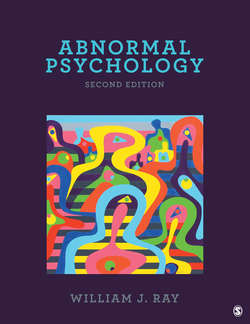Читать книгу Abnormal Psychology - William J. Ray - Страница 158
На сайте Литреса книга снята с продажи.
The Mental Status Exam
ОглавлениеThroughout the world, the clinical interview has been organized into major categories and referred to as the mental status exam. This exam is often given quickly to gain initial information.
mental status exam: clinical interview organized into major categories designed to determine a person’s cognitive processes
The first major category of the exam is the individual’s appearance and behavior. In the report, the mental health professional would note such factors as the individual’s clothing, grooming, and posture. Motor activity, such as slow movements, may be part of a later diagnosis of depression, whereas quick, abrupt movements may be associated with mania.
The second major category of the exam is mood and affect. Affect refers to the emotions that the individual is expressing during the interview. The person might seem happy or sad. The professional might note that the person laughs or cries in describing situations, where other individuals would not laugh or cry. Such affect would be described as inappropriate. It should also be noted if the individual shows no affect when describing situations such as receiving a large raise in pay or losing a friend, where others would be happy or sad. Such affect is said to be flat. Mood, as compared with present affect, is more long term. To assess this, the professional notes how the individual reports he or she has been feeling recently. Has the individual been feeling blue or angry?
The next category is speech quality. Here, the professional notes the manner in which an individual speaks. Is the person speaking quickly or very slowly? Does the person’s manner of speaking feel pressured? Does the person speak very quietly or with great volume? These are the types of speech characteristics the professional can observe and record.
The next major category is thought processes. In describing thought processes, the professional can note if the individual answers the questions that are asked and adds more information when appropriate. On the other hand, some individuals will produce responses that are not related to the question asked or tell a narrative in which each sentence is not related to the one that came before it. This is referred to as a flight of ideas. The content of the individual’s thought is also important. Is there a theme to the thoughts, such as that the CIA is out to get the individual? This would be referred to as delusional thinking. Does the individual keep repeating a certain theme? For example, some individuals express constant concern that they will have a heart attack or that their spouse is cheating on them. This is referred to as obsessional thinking. The professional should also take particular note if the person is talking about suicide or homicide. This may require an intervention.
flight of ideas: spoken expression in which comments are not related to a question asked or jump abruptly from one topic to another unrelated topic
delusional thinking: an unrealistic pattern of thoughts forming a theme
obsessional thinking: a pattern of repeated thoughts beyond the control of the person
Another major category is perceptions and a general awareness of the surroundings. Distortions of perceptions can include hallucinations in which the individual perceives experiences without external stimulation. Individuals with a psychotic disorder may hear a radio program talking to them directly or respond to voices in their head. General awareness of the surroundings includes the question of whether the person knows who and where he or she is and the present date and time.
The final categories describe intellectual functioning and insight. Intellectual functioning is generally noted in terms of current vocabulary used in the interview as well as previous academic achievement. The professional can also note if the person has an abstract understanding of the information he or she is reporting. Insight refers to the individual’s awareness of his or her own self and the factors related to his or her current situation and distress.
